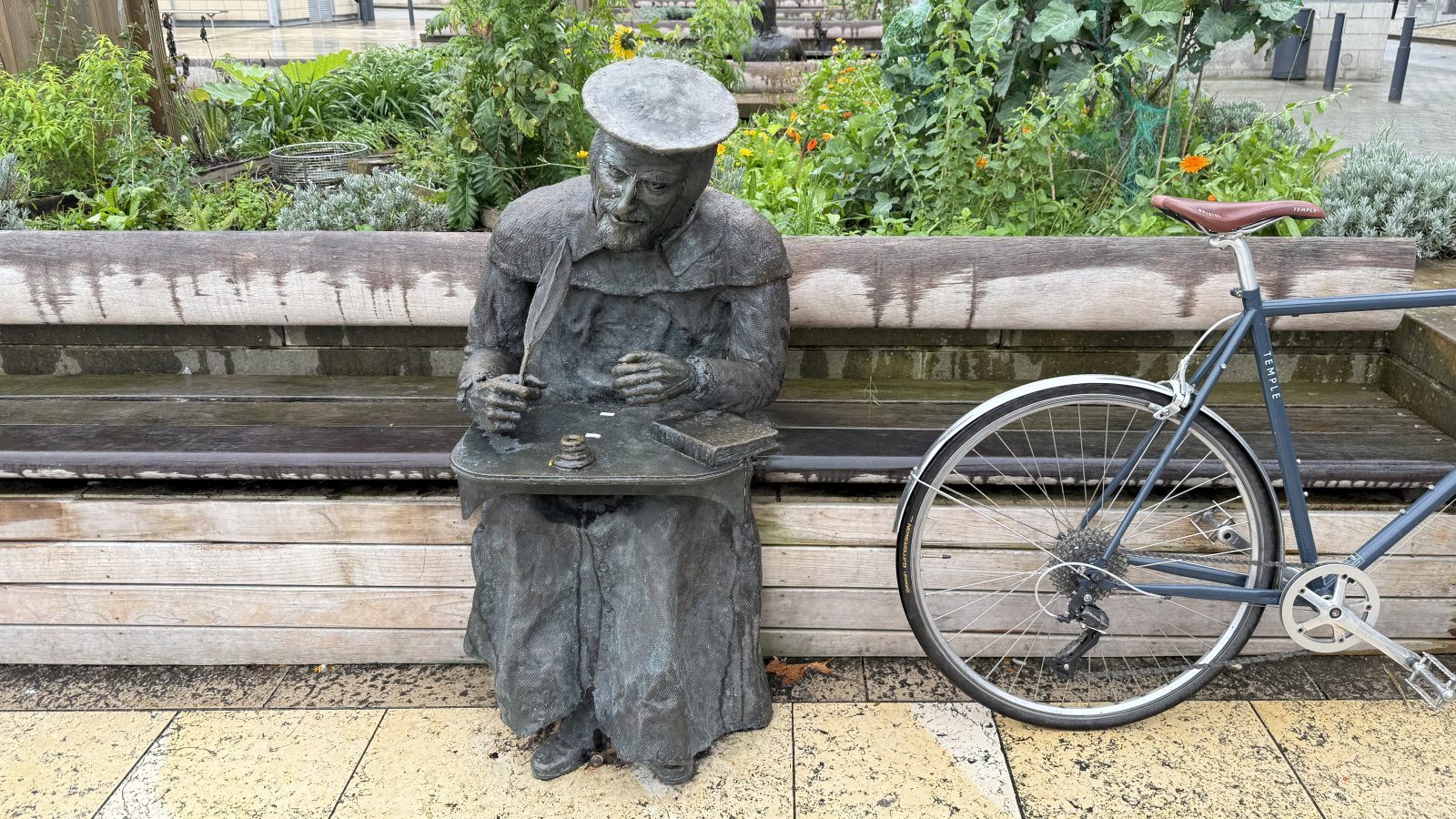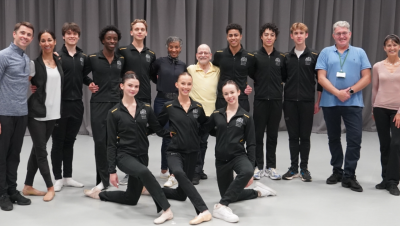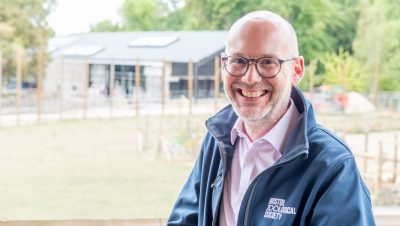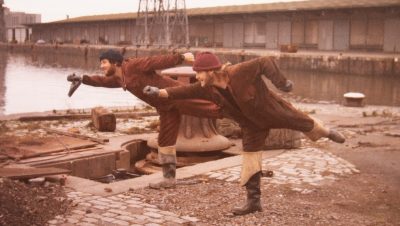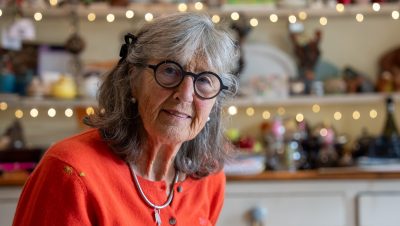Features / Bristol Legends
12 people through history who are bona fide Bristol legends
Bristol has already got legendary status as a city. But it’s the people that make a place and over the years, our home has produced men and women whose fame assures them a place in the history books forevermore.
There are also people, however, whose deeds continue to be spoken about within Bristol but whose status is not widely known beyond the city boundaries.
Some have got statues of them. One has a statue but it’s not much larger than a 30cm ruler. Others have roads, schools and a pub that have taken their moniker. One gave his name to a US state.
is needed now More than ever
So, in alphabetical order, here are 12 Bristol legends from throughout history:
Amelia Edwards

Amelia Edwards’ miniature statue can be found in Henleaze – photo: Martin Booth
Amelia Edwards was a trailblazing Egyptologist whose passion paved the way for others including Howard Carter, a student of hers, who discovered Tutankhamun’s tomb in 1922. Edwards also served as the vice-president of the Society for the Promotion of Women’s Suffrage and was a lesbian trailblazer, with the Outstories Bristol website describing her as being “refreshingly open about her sexuality in an age when this was unusual”.
Carmen Beckford
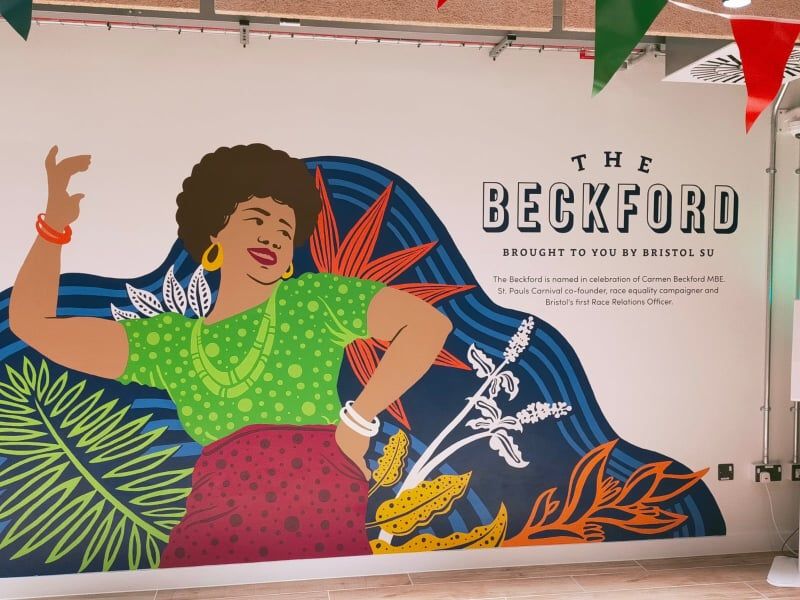
A bar at the University of Bristol’s Senate House is named after Carmen Beckford – photo: Milan Perera
One of the newest roads in Bristol, tucked off Ashley Road behind Stokes Croft, is called Carmen Beckford Street. It’s named after a woman who was a figurehead for race relations in Bristol and one of the original founders of St Paul’s Carnival. Carmen Beckford trained first to become a nurse and then a midwife. She was later Bristol City Council’s first community development officer and the first Black female recipient of an MBE in the South West.
Cary Grant
By many people’s estimations, Cary Grant is the most globally famous Bristolian of all time. As a boy, Archibald Leach lived across Bristol including in Bishopston and Horfield, going to school at Bishop Road and Fairfield, before joining a travelling troupe of acrobats and staying on in the USA after they returned to England. He then changed his name to Cary Grant, starring in films including North by Northwest, Charade and His Girl Friday.
Elizabeth Blackwell

Sheila Hannon becomes a ‘living statue’ of Elizabeth Blackwell next to the statue of Henrietta Lacks in Royal Fort Garden – photo: University of Bristol
Elizabeth Blackwell became the first woman to receive a medical degree in the United States and the first woman on the UK Medical Register. She also campaigned to abolish slavery and for morality in government. She has been remembered on a US stamp and in a statue at her former medical school in New York. Yet in Bristol, the place of her birth in 1821, a small plaque on her former home on Wilson Street in St Paul’s is remarkably unremarkable.
………………………………………………
Who are your present-day Bristol legends? Nominate them for our new Bristol Legends event.
………………………………………………
Francis Eaton

The current St Thomas the Martyr church on Thomas Lane in Redcliffe was designed in 1789 to replace a medieval church deemed unsafe for use – photo: Martin Booth
Francis Eaton, his wife Sarah and their son Samuel were passengers on the Mayflower. They were among a group who sailed across the Atlantic and established the first permanent New England colony in 1620. Not much is known about Thomas’ early life; other than that he was baptised in Bristol’s St Thomas parish. He was a carpenter; a no doubt useful skill for building shelter for the first settlers who became known as the Pilgrim Fathers.
Hannah More
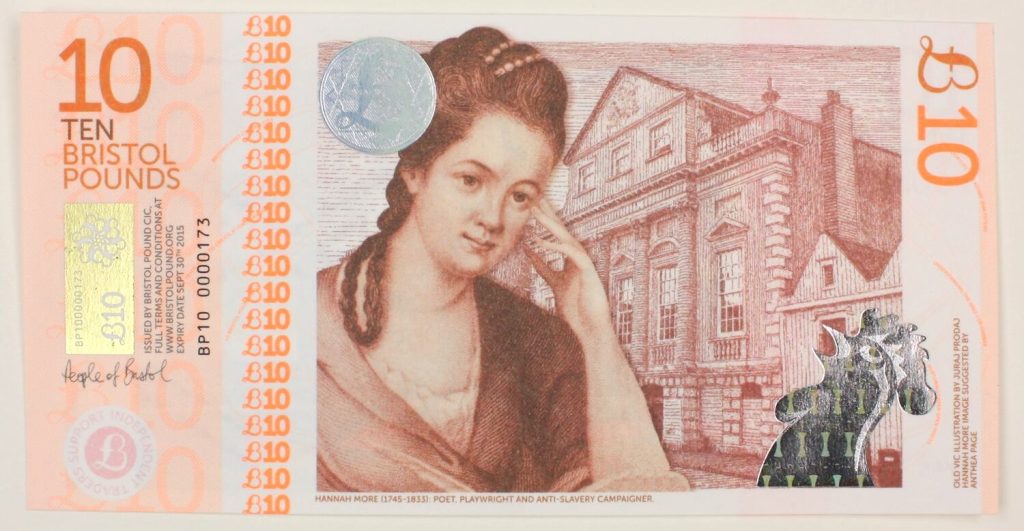
Hannah More featured on a Bristol Pound £10 note – photo: Bristol Pound
Born in Fishponds in 1745, Hannah More was an educator of the poor, setting up clubs for women and schools for children. She was a leading abolitionist and a friend of William Wilberforce. And she was a religious writer whose tracts costing just one penny sold in the millions, as well as writing plays that were performed in Bristol and Bath, and poems including on the evils of slavery.. She lived near Wrington and later on Windsor Terrace in Clifton.
Mary Carpenter
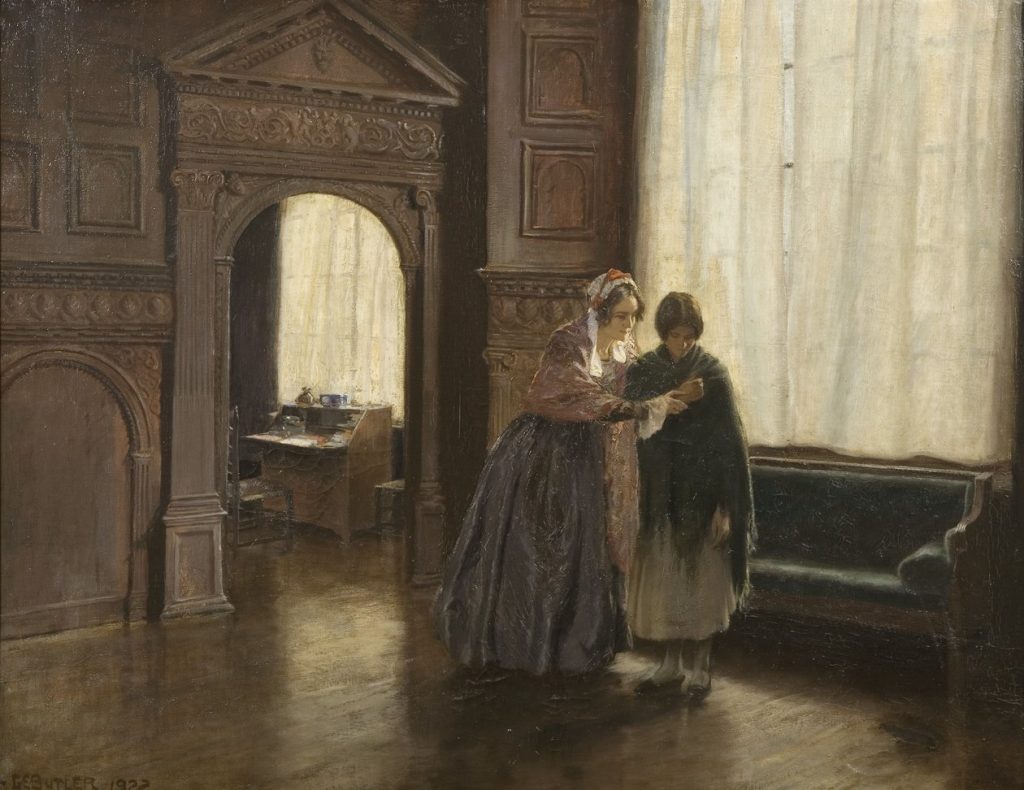
Mary Carpenter in the Red Lodge in a painting by George Edmund Butler – courtesy of Bristol Museums
Mary Carpenter was a leading figure in educational and penal reform. She was born in 1807 in Exeter and moved to Bristol in 1817. She first established a reformatory school in Kingswood for boys and girls, and then a separate girls reformatory at the Red Lodge. On visits to India, she advocated for women’s rights, set up girls’ schools and encouraged the training of female teachers. Mary also supported the anti-slavery and suffrage movements.
Paul Stephenson
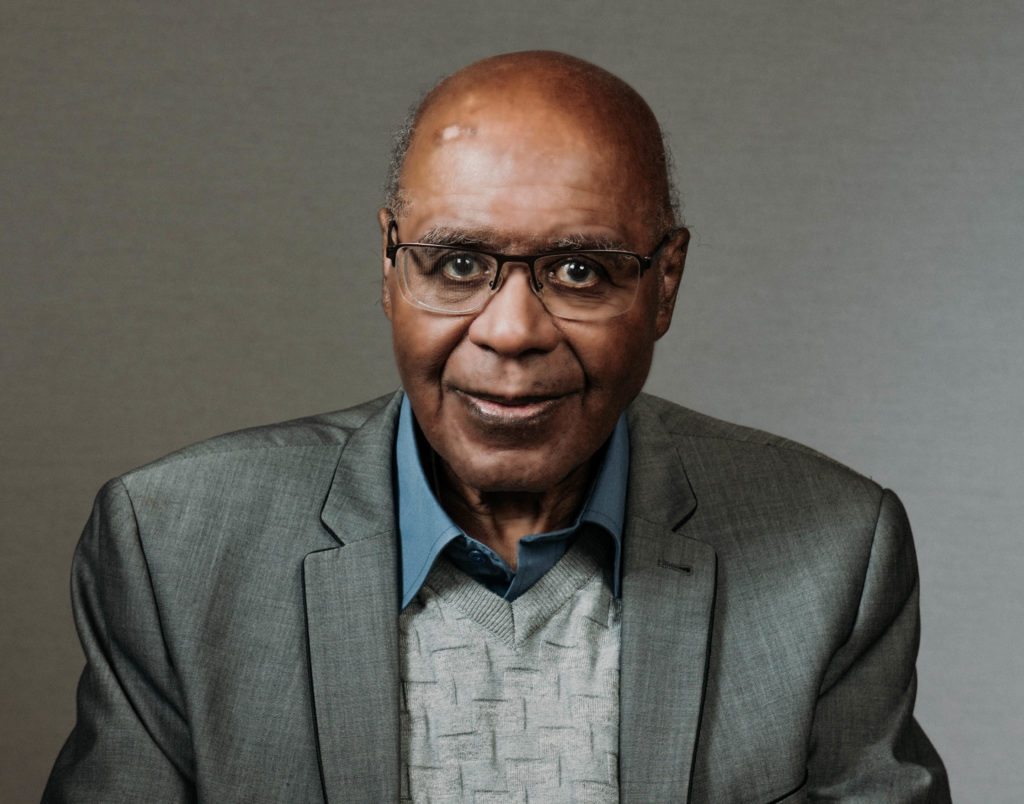
Paul Stephenson died in 2024 at the age of 87 – photo: Sarah Koury / KoLAB-Studios
Paul Stephenson was a civil rights leader whose work made waves across the world. He was instrumental in leading the Bristol Bus Boycott in 1963 and is also remembered with a plaque in the Bay Horse pub on Lewins Mead for his one-man sit-in after he was refused service because he was a Black man. Stephenson was the first Black social worker employed in Bristol, and had a lifelong commitment to equality and social justice.
………………………………………………
Nominations for our Bristol Legends event close on November 15. Who do you think really makes a positive difference to our city?
………………………………………………
Peter Higgs
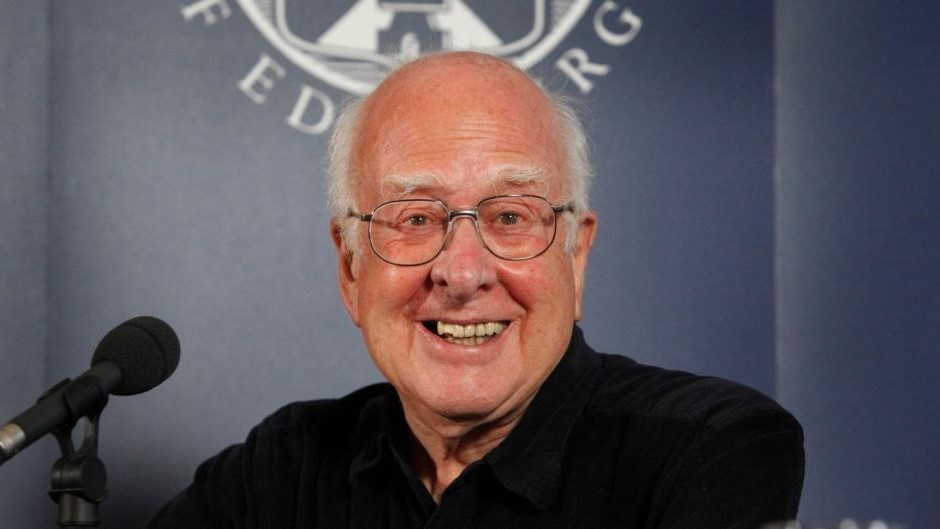
Peter Higgs’ ground-breaking theoretical work in the 1960s predicted the existence of a unique type of fundamental particle – photo: University of Edinburgh
When he was a student at Cotham Grammar School, Peter Higgs was inspired by another former pupil, Paul Dirac, who won the Nobel Prize in 1933 for combining quantum mechanics with Einstein’s relativity. Higgs, who lived in Bristol from 1941 to 1946, went on to win the Nobel Prize himself in 2013 after the discovery at the Cern large hadron collider of what was named the Higgs boson in his honour following his ground-breaking theoretical work.
Victoria Hughes
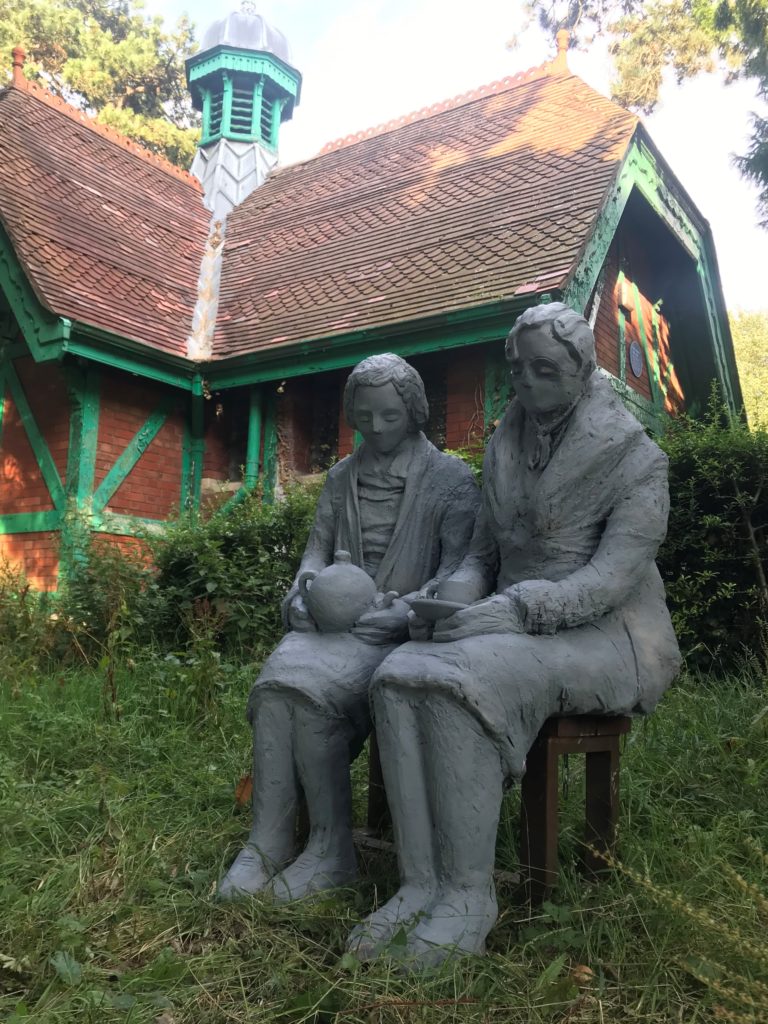
Toilet attendant Victoria Hughes was recently honoured in a sculpture by Getting Up To Stuff – photo: Martin Booth
From 1929 to 1962, Victoria Hughes worked as a cloakroom attendant in the toilets on the Downs. While working here, she made friends with and cared for women working as prostitutes, which a blue plaque on the side of the building now recognises. It was a time when the Downs had a reputation as Bristol’s red light district, with Hughes going above and beyond her official duties as a ‘loo lady’ to befriend the sex workers of nearby Ladies’ Mile.
WG Grace
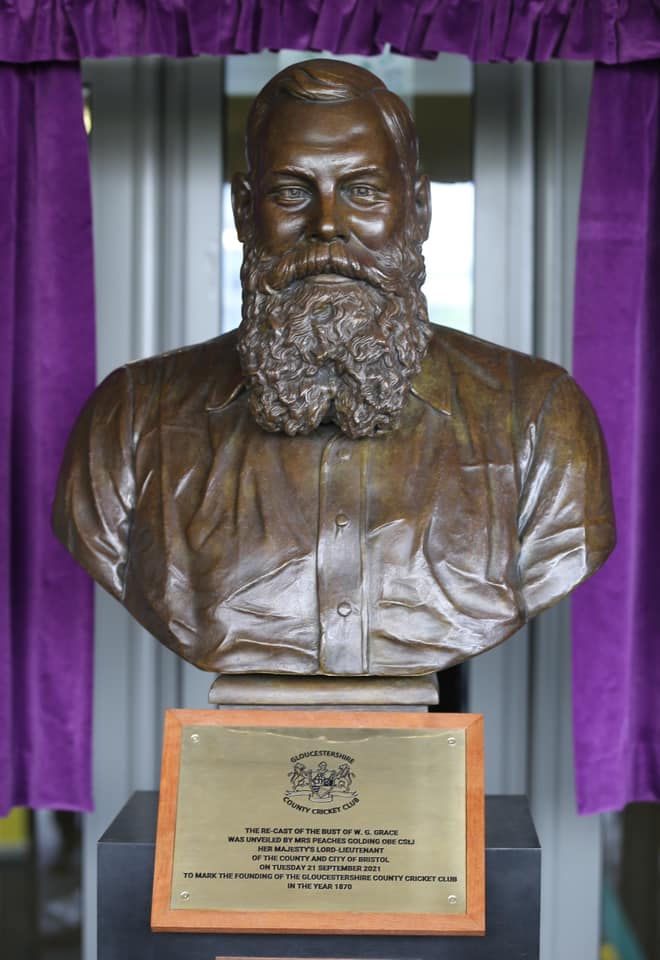
The bust of WG Grace at the County Ground is a re-cast of an original that was created in 1888 and is on display at Lord’s – photo: Gloucestershire Cricket
“They have come to watch me bat, not you umpire,” WG Grace is quoted as once saying when given out LBW. The Victorian cricketing colossus, who was born in Downend, was “a shameless cheat” according to an article written in Wisden. The spirit of cricket had yet to be invented when he was at the crease. But he was also the first global sporting superstar, and helped to create both Gloucestershire County Cricket Club and the Ashes.
William Tyndale
A statue in Millennium Square – alongside others including William Penn and Thomas Chatterton – shows a bearded man in a hat writing with a quill. This is William Tyndale, who was executed in 1536 after being convicted of heresy for translating the Bible into English from the original Greek and Hebrew texts. In his younger years, Tyndale was a tutor in Old Sodbury and preached on St Augustine’s Green, now known as College Green.
Main photo: Martin Booth
Read next:
 Our newsletters emailed directly to you
Our newsletters emailed directly to you